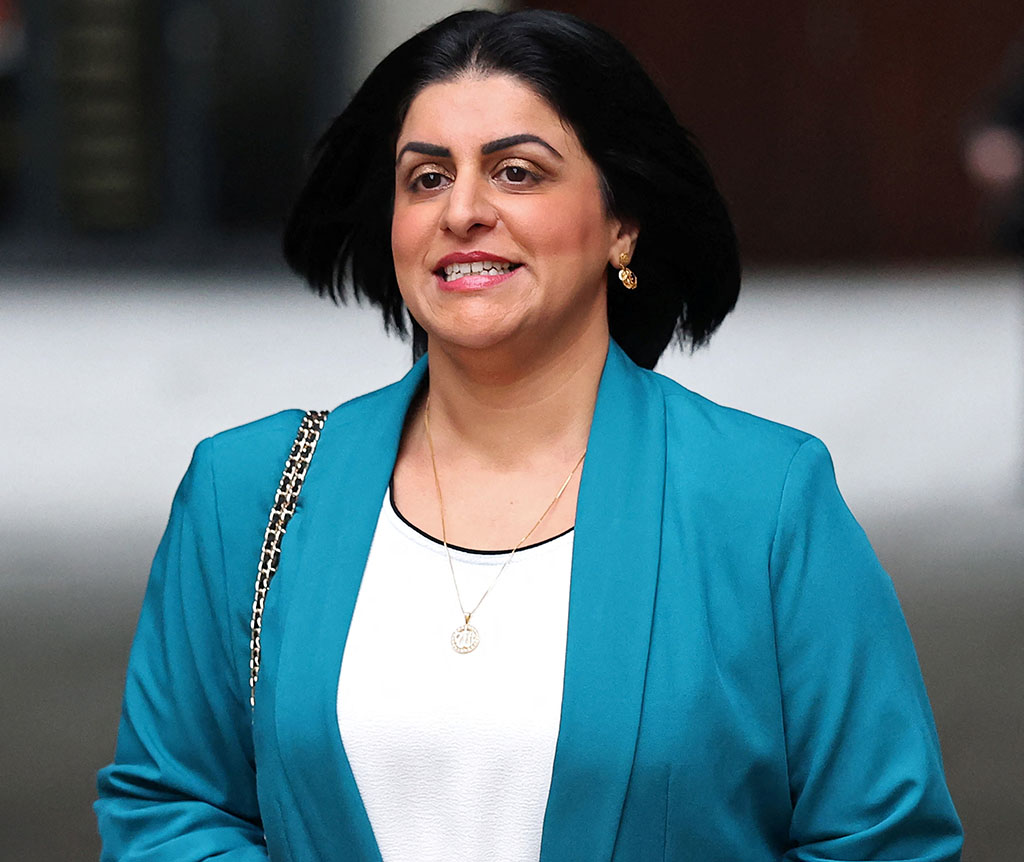In a desperate bid to stave off single issue Reform
The UK government’s new interior minister Shabana Mahmood was asked rhetorically whether she would be applying to join the anti-immigration populist party Reform UK as a backhanded compliment after her tough statement to parliament last week on the Labour party’s ruthless reform of refugee law and practice.
Her statement proposed three significant changes that it is hoped would discourage refugee arrivals in UK – including those arriving illegally in small boats. First, she will activate the much-neglected cessation clauses in the 1951 Refugee Convention.
These clauses say that you cease to be a refugee if the circumstances which made you a refugee cease to exist. The refugee will be required to apply every two and half years to show he still fears persecution if he returns to his country, until he has lived in UK for 20 years before being allowed to stay permanently.
Under the 1951 Refugee Convention, refugees lose protection and could be removed even to where their life or freedom would be threatened on account of their race, nationality, religious belief or politics if they become a danger to security or commit a particularly serious crime and are a danger to the country of refuge.
However, at present everyone is protected by article 3 of the European Convention on Human Rights (ECHR) that prohibits the removal of anyone to their country if they would suffer torture or inhuman and degrading treatment if removed there. The new UK interior minister said the government would tighten the definition of inhuman and degrading treatment to mean really serious mistreatment before it could be used by foreign criminals to frustrate its general policy of removing them from the UK.
She also wants to limit the right to private and family life under article 8 of the ECHR so that it would only apply to immigration cases exceptionally in the exercise of a much wider discretion to discourage immigration than exists at present.
The other pull factor the new proposals address is that the government will repeal the obligation to provide accommodation and support to asylum seekers who are destitute. This has caused huge resentment from Britain’s indigenous destitute people who feel that refugees have been prioritised over their more deserving ranks.
The proposed reforms were inspired by the way Denmark has managed to reduce refugee arrivals. Denmark had rejected the Treaty on EU Maastricht in a referendum in 1992 but approved it in a referendum in 1993 after it was allowed an opt-out in home affairs including immigration law that enabled it to stay out of the onerous obligations in refugee and human rights cases adopted by the EU in 2011.
How to discourage refugee arrivals is key to stemming the flow of refugees. More colloquially, is the UK a soft touch in terms of its treatment of refugees compared to continental Europe?
The present UK government has come to the conclusion the UK is indeed a soft touch and decided not just to get tough but to become the toughest in Europe. However, there is no doubt political considerations have been decisive. Labour is trailing Reform UK by 15 percentage points – the latest opinion poll has Reform at 33 per cent and Labour at 18 per cent.
Reform UK is still a single-issue political party. If black and brown immigrants stopped coming there would be no Reform UK and Nigel Farage would be just an eccentric loudmouth on the loony right.
At present, he is facing allegations of anti-semitic remarks in his youth – which I will not dignify by repeating them – and Reform UK’s leader in Wales has just been sentenced to 10 years imprisonment for receiving bribes from Russia to advance her cause on Ukraine.
In the UK, the Conservatives are hard right and Labour are hard left, but when in government they gravitate towards the centre, where the middle way holds sway. The middle ground itself shifts right and left like it did to the right when Margaret Thatcher was in power in 1979-90, but balance is usually restored as it was when John Major succeeded Thatcher.
Now and again, however, when times are hard, we have the phenomenon of populism when people are set against the established order of things by a charismatic leader with fanatical supporters and simple answers — usually by scapegoating minorities. We are almost there in Britain, which is why it is important not to ignore the populist tendencies that are mushrooming in continental Europe too.
Populist parties pose difficult questions for those who wish to reconcile and harmonise democracy and fundamental human rights. Democracy means that people vote in governments that make and change laws that determine how people are governed. Reform UK is a populist party, but it is a single-issue party with no socioeconomic hinterland apart from being anti immigration.
There is no moral reason why the Labour government should not adopt a tough policy on refugees to see off Reform UK. Few refugees are actually fleeing persecution when they arrive in UK and most genuine refugees would gladly return home when the circumstances that caused them to flee cease to exist.
Refugee law is part of international law designed to protect people in the process of escaping persecution, whereas asylum law is exclusively a matter of national law within the sovereign right of states to control immigration according to their political, economic and social requirements.






Click here to change your cookie preferences